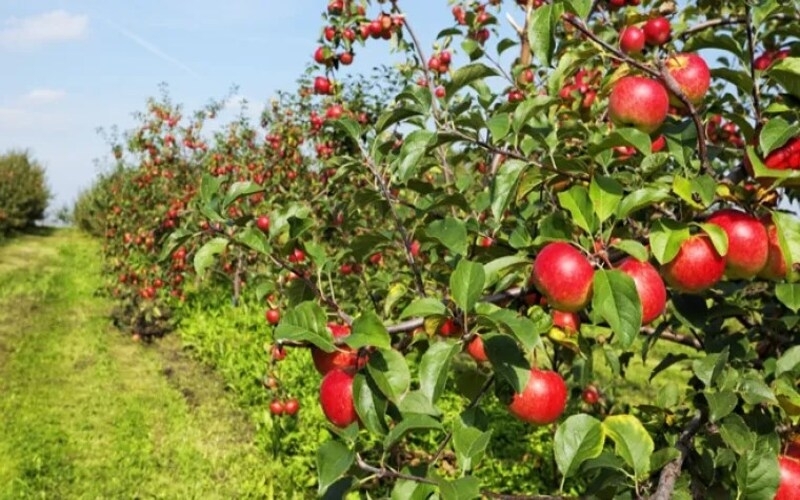Economy and employment increases with raising horticulture in Jammu and Kashmir

Nursey Today Desk
New Delhi. Horticulture has played a key role in the economic growth, poverty reduction and job creation in the Union Territory of Jammu and Kashmir. Various programs has been led by the Horticulture Department to improve infrastructure and promote the industry since Article 370 was repealed in August 2019, leading to notable advancement over the past few years.
Important taken by Horticulture Department
Through the Area Expansion Program, the Horticulture Department has effectively expanded horticulture throughout Kashmir over the past five years, putting 10,785 hectares of land under cultivation for crops including apple and walnut. This scheme has increased farmers’ revenue in addition to production and productivity.
Infrastructure Development
Horticulture department has developed 4,016 vermicomposting units in orchards across Kashmir and has given significant help to 3,099 handling units. It has also built and installed 2,108 borwells to meet irrigation needs. From 2017 until the present, farmers have been helped by providing 30,389 pieces of farm machinery, such as tractors, tillers, motor power sprayers, brush cutters, IP sets, and chainsaws.
Boosting Private Entrepreneurship
“High-Density Plantation Scheme 2022” program has been introduced by the Horticulture Department in order to increase the production of apples in high-density areas. This program supports local nursery growers by giving real root stock at discounted prices or providing incentives for importing root stock. The ultimate objective of the program is to increase fruit quality and yield while giving farmers access to genuine and reasonably priced plant material.
Promoting Youth Employment
Processing facilities in places like Pulwama, Anantnag, and Budgam have been established by young people under the Minimal Processing Units plan. The program gives these young entrepreneurs a subsidy of Rs 13 lakh out of a total of Rs 25 lakh, encouraging job creation and assisting them to become employment creators themselves. Department is also holding training sessions and assisting women who are interested in starting their own businesses.
Empowering Apple Growers
3,490 pack houses has been built by the horticulture department throughout Kashmir to make sure apple producers receive fair pricing for their produce. These facilities make it easier to clean, grade, and pack apples while also protecting the harvest from the whims of the elements. Central government provides the subsidy of Rs 2 lakh with a cost of about Rs 5 lakh overall to the farmers.
Sustainable Farming Initiatives
3,661 vermicomposting units has been given to farmers by the department to encourage the practice of organic farming over the past six years. 50% subsidy is given to the farmers for these machines, which turn recycled organic material into fertile and usable soil, under the PMDP and MIDH programs. Vermicompost is an organic fertilizer that is rich in nutrients and improves soil structure while also assisting in moisture retention.
Expanding Honey output and Pollination
The Horticulture Department has placed 6,590 bee colonies around the valley’s apple orchards in an effort to increase honey output and raise apple harvests. Honey bees are a key player in pollination; they are responsible for 95 percent of apple pollination and so unemployed young people and farmers are given a 50% beekeeping subsidy under the MIHD program. This effort seeks to enhance apple crop productivity and quality by correcting insufficient pollination management strategies.
These initiatives by the Horticulture Department are helping to change the economic landscape of the region and empowering farmers as horticulture continues to flourish in Jammu and Kashmir, assuring a prosperous future for the industry and the entire community.


